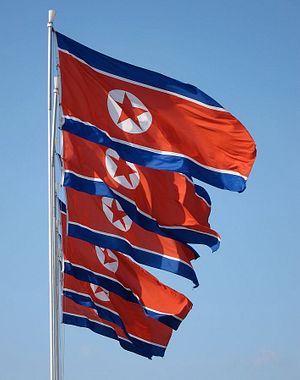North Korea’s deputy ambassador to London has become one of his country’s most high-profile defectors by fleeing to South Korea, adding to a growing list of defections by people held up by the regime for their loyalty.
Thae Yong-ho, Pyongyang’s No. 2 man at the U.K. embassy, is the most senior diplomat to ever claim refuge in the South, which is home to some 30,000 North Korean defectors.
Thae, a fluent English-speaker who spent the last decade in London working to improve North Korea’s beleaguered image through speaking events and media appearances, fled with his family because he was concerned for the future of his offspring and had become “sick and tired” of leader Kim Jong-un’s regime, Seoul’s Unification Ministry said on Wednesday.
Coming after a string of high-profile defections, including 12 waitresses who fled a North Korean restaurant in China earlier this year, Thae’s flight raises questions about the Kim leadership’s control over its most trusted citizens abroad.
Seoul, which is engaged in a near-constant war of words with Pyongyang, seized on that point on Wednesday, claiming that the regime was at a “breaking point.”
“The defection by this high ranking diplomat is a truly shocking, alarming development,” Jung Gwang-il, a North Korean defector and the founder of the NGO No Chain, told The Diplomat. “Thae was someone who was out in the West for a long time, living in Europe and the U.K., and he must have had a change of heart and a ‘conversion’ some time ago as he realized the situation in North Korea and the reality of the outside world. He also must have thought a lot about the future of his child, knowing that he would have had no future in North Korea.”
Jung said Kim would be extremely concerned about Thae’s flight, adding that sources on the China-North Korea border had informed him the regime had deployed more State Security Department agents into China to clamp down on defections.
“Kim Jong-un is having a serious fit of worry and stress over this, most likely. He will lash out at his subordinates, and carry out more violent and oppressive responses to this latest defection,” Jung said. “He knows that unless he stops the high ranking defections, his days are numbered.”
Defections by diplomats, whom the regime trusts more than most of its citizens in allowing them abroad, are not unprecedented: In 1997, the country’s ambassador to Egypt fled his post to resettle in the United States.
But in the last year alone, South Korean media has reported on an eye-catching number of senior figures turning their back on the regime, including a diplomat each in Russia and Thailand, a colonel with North Korea’s top spy authority, and a general responsible for managing Kim’s overseas slush funds. Shrouded in secrecy, such flights have generally been impossible to confirm independently.
“Erosion of control in such a highly-controlled system is relative, isn’t it?” Adam Cathcart, the U.K.-based editor-in-chief of the website Sino-NK, told The Diplomat. “This is a country that has withstood unchecked aerial bombing and almost total rollback during the Korean War; North Korea also withstood the defection of Hwang Jang-yop, the supposed architect of Juche ideology.”
Cathcart, who met the dapper and well-spoken Thae several times but gleaned no hint of dissatisfaction with the regime, expressed caution about assuming a broader pattern of dissent within North Korea.
“While the defection of Thae is certainly a shock for U.K.-North Korea relations and those of us involved in that scene in London and Pyongyang, I don’t see it as the harbinger as a wave of defections from positions higher than his — unless of course Thae is sitting on some gold mine of information about a network of Stauffenbergian internal dissent,” he said, referring to Claus von Stauffenberg, a German army officer who led a failed plot to assassinate Adolf Hitler.
Overall defections, usually involving North Koreans of modest means, have fallen drastically since Kim Jong-un took over from his father in 2011. But the number is on course to rise significantly this year: 749 North Koreans — well over half last year’s figure — arrived in the South in the first half of 2016.
This piece has been updated with additional comment from Jung Gwang-il.

































